China’s highly secretive 19th National Congress has begun. The Middle Kingdom might be a one-party system ruled by the Chinese Communist Party. But that doesn’t mean there isn’t any political power struggle within the powerful Chinese party. Nobody knows for sure who gets promoted and who doesn’t. The process of leadership change in China is a black box itself.
The gathering, dates back to 1953, at Beidaihe beach resort, 280km east of Beijing on the Bohai Sea, has no formal agenda and never announced to the public. What we do know is that ambitious President Xi Jinping will use this opportunity to install loyalists and protect his legacy through consolidation of his power and status.
The stakes are high as this round will witness the retirement of five of seven members of the nation’s most powerful ruling body – the Politburo Standing Committee. President Xi in his capacity as the General Secretary of the Central Committee is one of the seven members of the Politburo – the most powerful decision-making body in China.
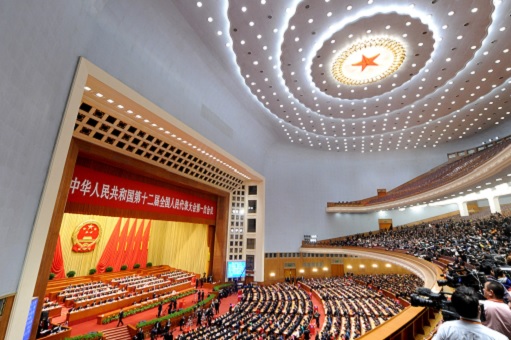
President Xi’s second term as the party general secretary and chairman of the central military commission is already guaranteed. The only unknown variable is how many votes he would garner when his presidency is renewed next year. He would make sure that a low number of votes for him – an embarrassment – won’t happen.
Thanks to communism, the Chinese Communist Party can amend the constitution anytime. Therefore, if Mr. Xi likes to rule for 15 years, he can amend the rules. Although the law says a president can serve two terms, it’s not carved in stone. Everything is informal and in theory. In practice, there’s no term limit or age limit. But just how importance the congress really is?
Look no further than the superpower United States. President Donald Trump is scheduled to deliver his speech on Friday, specially designed to target China’s IP (intellectual property) and trade practices. However, his speech, essentially a declaration of trade war with China, has been postponed. Neither explanation nor new re-schedule date was provided by the White House.
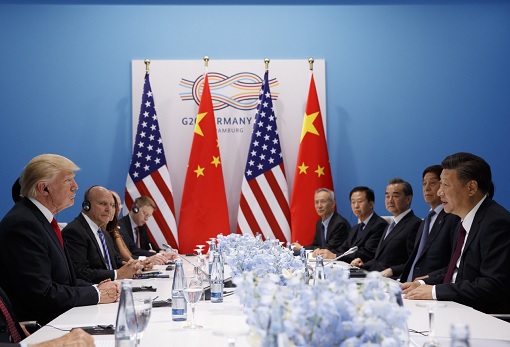
Earlier on Wednesday, senior White House officials confirmed that the U.S. president was supposed to criticize Beijing’s practices and sign a memo asking U.S. Trade Representative Robert Lighthizer to look into the matter. Mr. Lighthizer, in turns, would initiate an investigation under the Trade Act of 1974’s Section 301, as reported by Reuters.
The Section 301 allows President Trump to unilaterally (to hell with democracy) impose tariffs or other trade restrictions to protect U.S. industries. Although extremely powerful, the Section 301, which has been rarely used, is very damaging not only to China but to the United States itself. Not even American business community agree that Trump should unleash the “obsolete U.S. trade tool.”
In fact, the Section 301 is so powerful that it can bypass agreements signed under the WTO (World Trade Organization), of which China is a member of. Heck, the Section 301 does not even need an approval from the Congress. Effectively, Section 301 is a bullying weapon which only the U.S. possesses. It was once used to impose tariffs against Japanese motorcycles and steel in the 1980s.
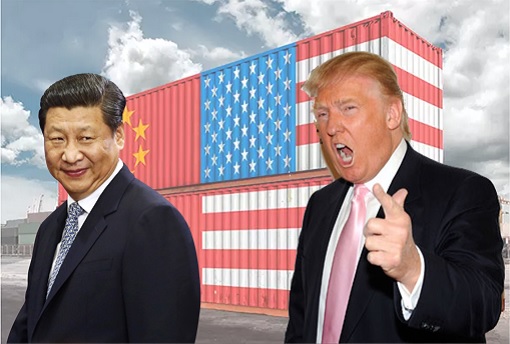
But why is Trump administration holding back from unleashing the ultimate weapon against the China at the eleventh hour? Apparently, before news of Trump’s speech postponement, the Chinese Commerce Ministry pushed back and rubbished against allegations that the Chinese has not done enough to protect intellectual property.
Instead of being intimidated, Beijing said they’re waiting to see if President Trump will actually take action of declaring a trade war with China. They’re calling Trump’s bluff. Ministry spokesman Gao Feng simply said that if the U.S. decides to unleash Section 301, Beijing would take the disputes to the World Trade Organization.
In reality, however, President Xi would gladly welcome a declaration of trade war from President Trump. With the 19th National Congress in full swing, it would provide the Chinese president the ammunition to realize his ambition to rule until 2027. A trade war declaration will be seen as a personal challenge to Xi, and he will certainly retaliate against American products.

Perhaps Trump didn’t realize this but for the first time in 2 decades, U.S. soybeans became a top export to China in 2016 – worth a staggering US$14 billion. That’s 62% of United State’s total soybeans export worldwide. So, American soybean farmers (Trump’s voters in Iowa, Indiana and Nebraska) could be the first casualty as President Xi will most likely slaughter them first.
U.S. companies with huge China presence – Apple, General Motors, Starbucks and Boeing – could get caught in the crossfire too. Apple’s revenue in China totalled US$46 billion while General Motors’ was US$45 billion. And Boeing, which said late last year that it expects Chinese airlines to buy over US$1 trillion worth of planes over the next 20 years, would suffer dearly.
It has been President Xi’s primary goal to garner highest votes possible as an endorsement to his leadership. Therefore, it doesn’t need a rocket scientist to predict what he will do during the 19th National Congress, if Trump proceeds with his speech declaring a trade war with China on Friday. That alone speaks volumes about the influence China has as the world’s economic powerhouse.

Xi knew that the powerful Section 301 would be too damaging, even to the U.S., when triggered. That was why the tool was retired in the mid-1990s because the Section 301 had upset the global community as they viewed it as both unilateral and unfair. So far, despite Trump’s tough talk, Beijing has seen no 45% tariff on Chinese goods, no border tax and no quotas on steel.
China’s controlled mainstream media has warned that it doesn’t make sense the U.S. is linking the North Korea nuclear issue with U.S.-China trade. Beijing has already prepared for any eventualities and said that, depending on Trump’s action, China will have no choice but to take retaliatory measures. Of course, the badass Chinese could take some unpredictable counter-attacks.
For example, in 2009, the Obama administration slapped a hefty tariff on Chinese tires. Soon after, Beijing imposed penalties on U.S. chicken parts, entirely different industries – costing American poultry producers. If Trump could link North Korea’s problem with China’s trade, China would play the same game – linking unrelated American products to the trade war.
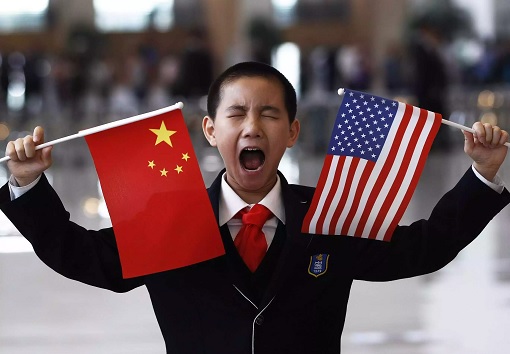
Other Articles That May Interest You …
- Show Of Power – Vietnam Stops Drilling After China Threatened To Attack
- A US-China Trade War About To Happen – Here’s Why The Yankees Can’t Win
- China Bans Winnie The Pooh – Here’s Why The Teddy Bear Is Blacklisted
- China’s New Cybersecurity Law Effective Today – What Does It Mean To You
- China Invasion – Top 10 American Iconic Brands Now Owned By Chinese
- How China Brilliantly Uses North Korea To Get What They Want From Trump
- Killing The US Dollar – China And Russia Getting Out Of Greenbacks Control
- Relax Mr. Kim, Here’s Why China Will Not Allow U.S. Attacks North Korea
- Here’s How China Hurts U.S. – Boycotts All South Korean Products
- China Is Terrified – Trump Has The Power & Ability To Screw Its Economy

|
|
August 4th, 2017 by financetwitter
|


|

|

|

|

|

|






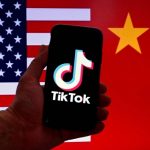




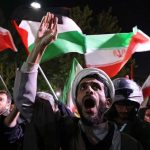


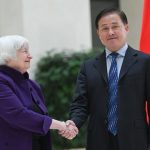













Comments
Add your comment now.
Leave a Reply